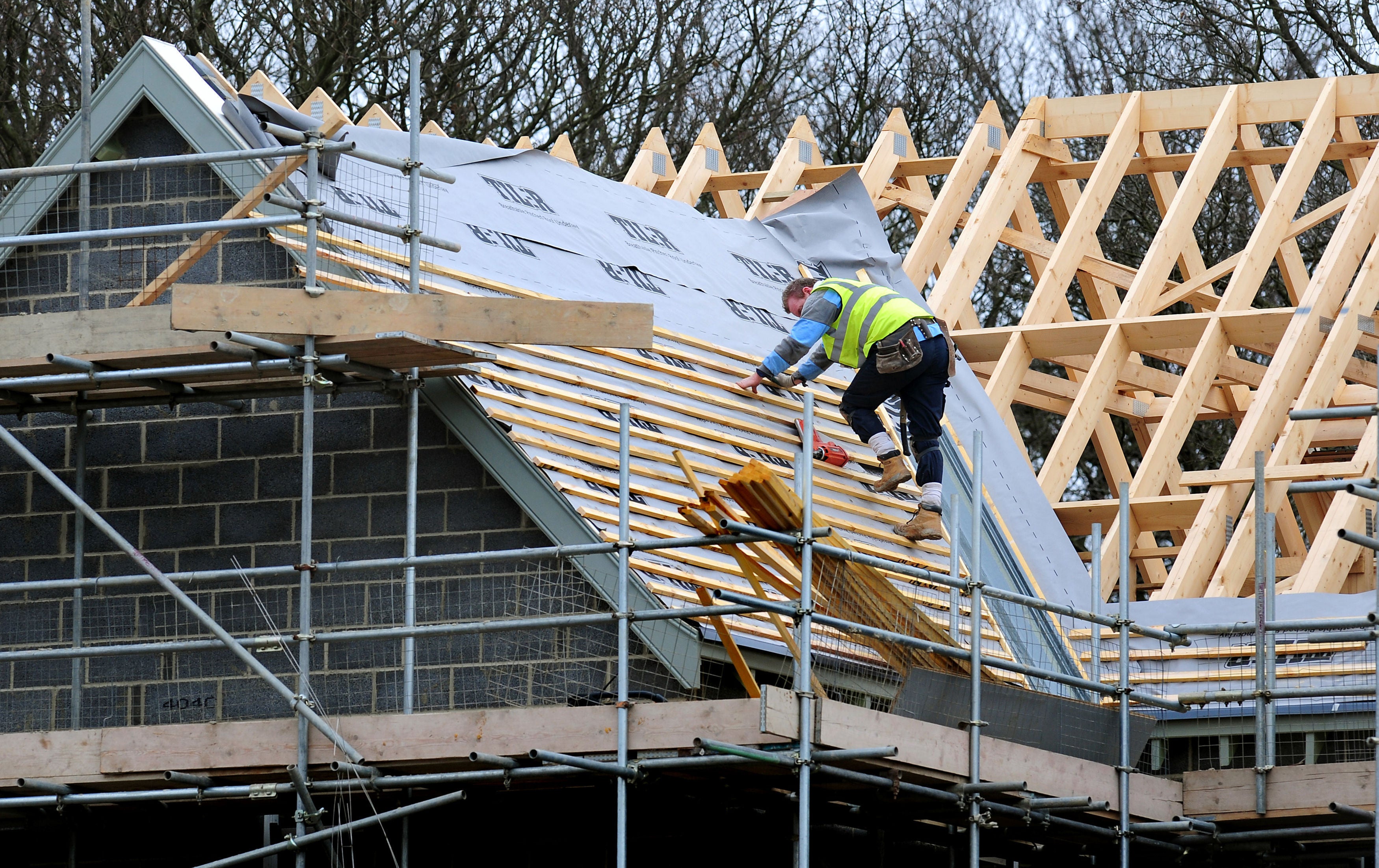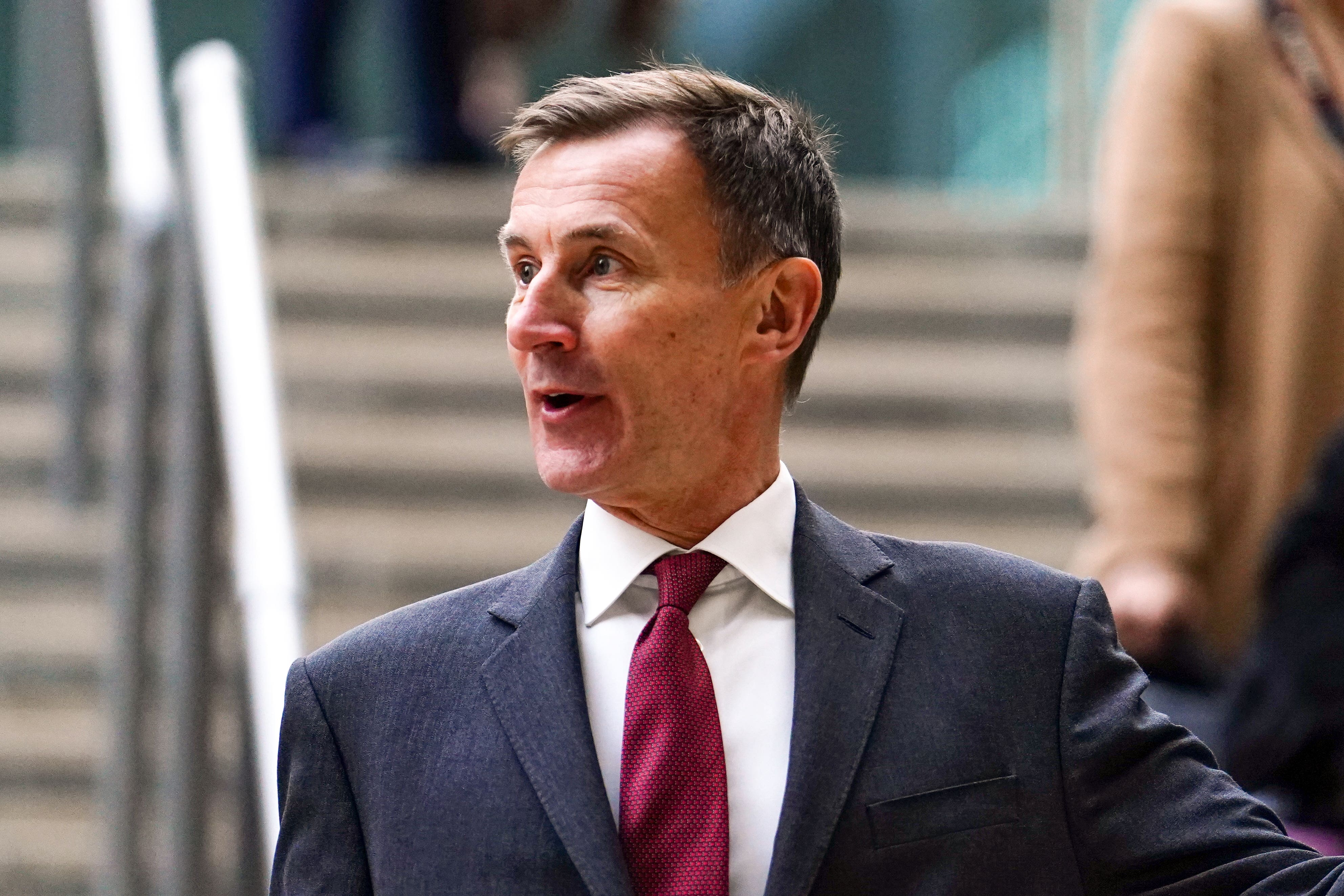Brexit U-turn: Builders to get special immigration status to tackle construction industry crisis
Builders expected to be added to ‘shortage occupation list’ to allow EU labourers to return
Your support helps us to tell the story
From reproductive rights to climate change to Big Tech, The Independent is on the ground when the story is developing. Whether it's investigating the financials of Elon Musk's pro-Trump PAC or producing our latest documentary, 'The A Word', which shines a light on the American women fighting for reproductive rights, we know how important it is to parse out the facts from the messaging.
At such a critical moment in US history, we need reporters on the ground. Your donation allows us to keep sending journalists to speak to both sides of the story.
The Independent is trusted by Americans across the entire political spectrum. And unlike many other quality news outlets, we choose not to lock Americans out of our reporting and analysis with paywalls. We believe quality journalism should be available to everyone, paid for by those who can afford it.
Your support makes all the difference.Rishi Sunak’s government is understood to be planning to welcome in more foreign builders to tackle a chronic post-Brexit labour shortage in Britain’s construction industry.
Despite the crackdown on illegal immigration routes, the government is said to be ready to add construction workers to a “shortage occupation list” in a bid to boost sluggish housebuilding.
The building sector has suffered from an acute lack of workers since Brexit caused many European labourers to return to the EU.
The government’s Migration Advisory Committee (MAC) has recommended that bricklayers, plasterers, roofers and other construction workers should be added to the shortage list, according to the Financial Times.
Citing government insiders, the report said home secretary Suella Braverman is expected to accept the idea of allowing building firms to bring in more overseas workers.
The Independent understands the government is planning to reveal the results of a review on the “shortage occupation list” within weeks, and changes could be announced around the time of chancellor Jeremy Hunt’s Budget next week.
The shortage occupation list allows companies to get visas for staff being paid the lower threshold of £20,480 a year. The salary needed to obtain a “skilled worker” visa is £25,600.
The construction industry has been pushing hard for industry workers to be added to the shortage list. The Federation of Master Builders (FMB) has previously said it was a mistake to cut off labour from the EU after Brexit without addressing the UK’s skills shortage.
The FMB trade body said on Thursday that the proposal to ease immigration rules would be a huge boost for the construction sector.
Brian Berry, FMB chief executive, told The Independent it would “help address the current skills shortages in the construction industry”, adding: “There still needs to be investment in UK-based training to train the next generation of builders.”
Mr Berry said around a third of firms in its group are struggling to hire carpenters and bricklayers, causing 60 per cent of building jobs to be delayed.
The Office for National Statistics reported a 42 per cent fall in the number of EU nationals working in UK construction between 2017 and the end of 2020.
The Home Builders Federation (HBF) also welcomed the idea of easing immigration rules. “If we are to increase housing supply and deliver the government’s housing target it is essential we have continued access to skilled labour from abroad,” a spokesperson said.
They added: “The industry is working hard to ensure that there is sufficient depth in the home-grown workforce but in the interim, access to foreign labour is required to plug capacity gaps.”
The organisation has argued that an extra 30,000 workers are needed to build an extra 10,000 homes. Last year, the UK saw around 230,000 new homes built – meaning around 210,000 extra workers would be needed to hit a target of 300,000 new homes.

There have been reports that the government could consider adding hospitality workers to the shortage occupation list, as Britain’s pubs and restaurants also struggle with major staffing issues after Brexit and the Covid crisis. But the industry is not expected to be added to the list at this stage.
Urging ministers to consider opening it up more widely, Kate Nicholls, chief executive of UKHospitality, said it was clear “there aren’t enough people active in the economy to be able to fill all the roles that we need”.
Mr Hunt is set to reveal plans to get more Britons “back to work” at the Budget next week. He is expected to make changes to the benefits system and announce other measures to encourage more over-50s to return to the labour market in a bid to cut the number of economically inactive Britons.
Sickness and disability payments could be removed more gradually once people find a jobs and start earning. The government is also said to be considering proposals to give over-50s tax breaks for getting back into work.

Around 9 million people in the UK are now “economically inactive” according to government figures, and around 2.2 million are on out-of-work benefits.
Brexit has led to a shortfall of around 330,000 workers in the UK, mostly in low-skilled sectors, a report by the Centre for European Reform (CER) and UK in a Changing Europe found earlier this year.
The Best for Britain group, which campaigns for closer cooperation with the EU, said labour shortages partly caused by a “hard Brexit” were “crippling both the UK’s economy and public services”.
Chief executive Naomi Smith said: “Immigration is good for the UK. All politicians must start being honest about that and create the conditions to make it easier and more appealing for critical workers to come here and fill vacancies.”
The Home Office last month commissioned MAC to carry out a major review of the shortage occupation list. While the call for evidence is open until May, ministers are said to have asked for a “quick and dirty” review to look specifically at construction, hospitality and retail.
Asked about the recommendation to allow more construction workers in, a government spokesperson said: “We work closely with the Migration Advisory Committee to ensure our points-based system delivers for the UK and works in the best interests of the economy, by prioritising the skills and talent we need and encouraging long-term investment in the domestic workforce.
“This includes reviewing the shortage occupation list to ensure it reflects the current labour market. The MAC has published its call for evidence and we encourage all interested parties to respond.”





Join our commenting forum
Join thought-provoking conversations, follow other Independent readers and see their replies
Comments